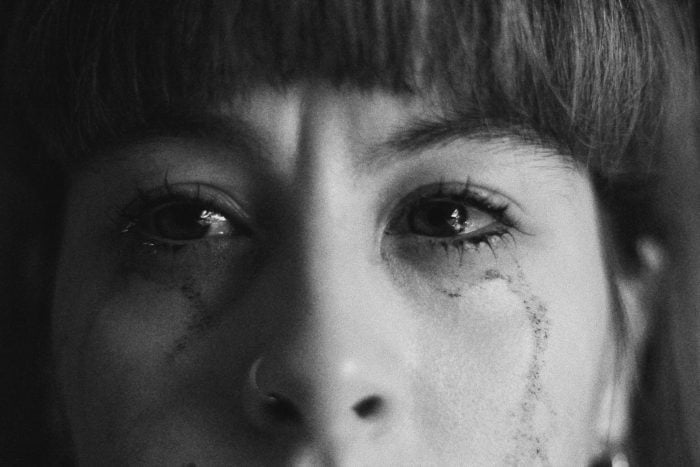Let’s talk about death, baby.
Do you remember the cannon fire sound from “Hunger Games” that went off every time a tribute had fallen?
That’s the sound I have in my ears every time I hear someone say that a loved one died from COVID-19. Sadly, I hear that quite often lately.
And that sound of the cannon fire multiplied by a trillion, plus the pain of the whole world, was all I could hear and feel when I was told that my grandpa didn’t make it, too. Because of COVID-f*cking-19.
It’s hard to tell what was hurting most at that moment.
Was it knowing that he had spent his last week alone and isolated in a hospital room, not able to see or speak to any one of us?
Was it knowing that he and my grandma, married for almost 60 years, didn’t have a chance to say goodbye properly?
Was it knowing that he also thought, like all of us, that he was for sure coming back home but then was suddenly facing death?
Was it knowing that, at some point, he must have realized that he didn’t have much more time and was probably not seeing any one of us again?
Was it knowing that my cousin’s big wedding that he was so looking forward to (because he loved big feasts) would happen without him by our side?
Well, I can’t tell. It’s probably all of those above and more…
We were so sure that he had at least five or even 10 more years. He was still fit with his 81 years, you know. But that’s the thing. We can’t ever be sure about something like that. We always kind of pretend to be, I guess. Not even tomorrow is definite if you see it like that.
Like the funeral speaker put it (quoting Thomas Paine):
“Nothing, they say is more certain than death, and nothing more uncertain than the time of dying.”
These words stick with me. Of course, deep down, we all do know that well, don’t we?
It makes me wonder how my grandpa was thinking about death. What did he think happened after death? Was he actually believing in a soul or afterlife? That is something you never talk about, unfortunately. And I absolutely get why, because why would you think or even talk about that while someone is still alive?
But also—regarding the fact that we are only alive because we signed the contract with a definite end—shouldn’t death be a more normal topic to speak about? Wouldn’t it make everyone more comfortable in the end? I wonder if speaking more openly about it could get the weirdness out of it.
I deeply wish that he was grateful during his last minutes as a human being on Earth. I deeply wish that he could feel everyone’s love at the purest level possible. I deeply wish that it is true that hearing is indeed the last sense to go when we die. Because if so, he could hear that my grandma, my dad, and my aunt came to say goodbye. They were allowed to come out of quarantine to drive to the hospital when the doctors were sure he doesn’t have much longer.
From what they’ve told, it must have been the most heartbreaking scene imaginable. He was already in a coma then. His condition has worsened so incredibly fast. Machines helped him breathing. His organs shut down one after another. My grandma was holding his hand, told him over and over again that he should stay and how much she needs him. He couldn’t speak anymore. He also had his eyes closed already. But I am sure he heard everything.
A couple of tears were running down his eyes, which my grandma wiped away carefully. Tears of sadness because he wanted to stay but was not able to do anything? Tears of happiness because having his family there in those last moments meant the most? I don’t know the answer. But I do believe it was probably both. His heart stopped shortly after, and then, the cycle of life was complete. When he was born, he took his first breath in, and almost 82 years later, he took his last breath out.
It is never the “right time,” though.
And because the reason was Covid, it makes it feel like it shouldn’t have happened—it worsens the pain. All that makes it even harder to accept it. As if you actually had the choice not to accept something that certainly already happened. Not accepting what can’t be undone is only harmful, obviously.
I’m not really sure if accepting and still wishing it would be different is possible at the same time. It is a long process in which everyone deals in his or her own way.
But one thing is probably the same to everyone, the different shades of death:
It is not only a loss; it is heartbreak, too. Heartbreak—the worst for my grandma, the love of his life—because he is now gone for a fact and never coming back. But maybe that’s what the crack in our heart is for—so that they can sneak in and keep on living there.
It is not only despair. It is anger and frustration, too—anger at life itself, death, fate, or the God who might or might not exist.
It is not only pain. It is a daily effort to learn how to live with it. A daily effort that takes time and is incredibly uncomfortable.
It is not only hopelessness. It is fear, too. Fear that we are not able to stand this pain.
It is not only sorrow and grief. It is regret, too. Regret that we could have said, “I love you” more often.
But there is still the other side.
Because it is not only loss and heartbreak; it is gratefulness, too. Gratefulness that all of us got to know him as a wonderful husband, dad, uncle, grandpa, grand grandpa.
It is not only despair, anger, and frustration. It is forgiveness, too. Forgiveness for [fill in the blank].
It is not only pain and a daily effort how to live with it. It is patience too. Patience that even the worst days will pass. Patience with the healing process which takes exactly the time that it needs to take. Different for everyone.
It is not only hopelessness and fear. It is certainty, too. Certainty that energy is not dying.
Certainty that he could feel all our love in an extraordinary way at the end of the road.
Certainty that one day we might even see ourselves again.
Certainty that he was grateful, too, for getting to know all of us.
It is not only sorrow, grief, and regret. It is being at peace, too. At peace, because we know by heart that grandpa lived a happy and fulfilled life. At peace, because we know by heart that all those beautiful memories can never be taken away from us. And he, too, carries them in the roots of his soul.
It is something that feels like it’s not from this world, but it is actually quite human. Human because whatever we feel means that we are alive, and it is all-natural.
The truth is that it is still f*cking hard, and there is no possible way to make it less hard. There is absolutely no phrase in the world that can make it any better or more bearable for the ones who are grieving. Especially for the person who was closest to the soul that left, which is, in this case, my grandma. I can’t even imagine what she must be feeling.
Of course, everyone is grieving differently, and everyone else who is trying to comfort the other one and be there is doing the best he or she can.
I believe that the only words you’d desperately want to hear during an experience like this are the words of your passed loved one. And that is impossible unless that person left a note for that case. Wouldn’t that be awesome? If death is so certain for all of us, I really do wonder, now, why each and every one of us isn’t sitting down once in a while to write such notes.
Of course, we do not want to think about death, especially not our own, or how painful it would be for our loved ones. But in the end, wouldn’t we be more acceptant than on both sides? I just leave this as food for thought.
To everyone who experienced loss because of COVID-19 or any other cause, always remember:
“Grief is a matter of the heart and soul. Grieve your loss, allow it in, and spend time with it. Suffering is the optional part. Remember that you come into this world in the middle of the movie, and you leave in the middle, and so do the people you love. Love never dies, and spirit knows no loss.” ~ Louise Hay
So, I guess it is not really a goodbye, grandpa. We’ll keep you alive in our hearts.
We will remember the way you laughed. We will remember all of those incredible funny stories.
May your soul rest in peace.











Read 5 comments and reply